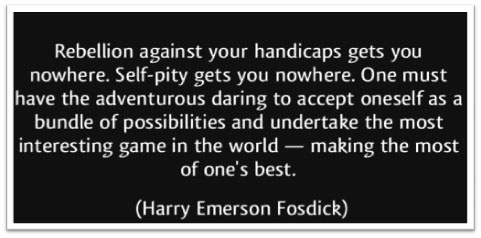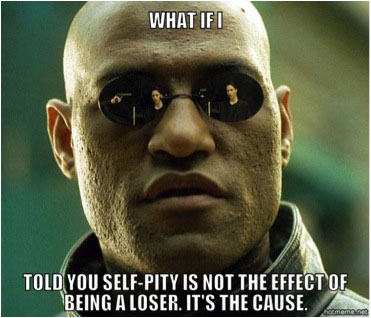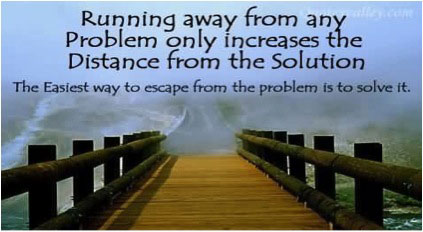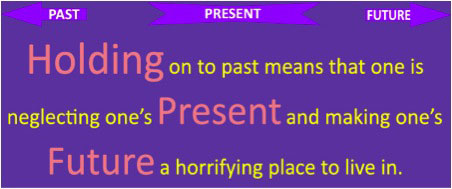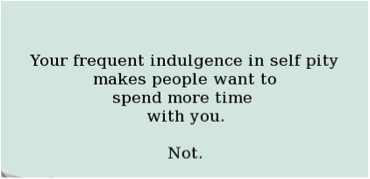Life rarely moves exactly how we plan it. In our heads, our path seems straight and simple. However, in pursuit of our goals, we enter unfamiliar territories often unprepared. While fumbling through a way out, we make mistakes and get anxious. Problems often unexpectedly take us by surprise. A sudden loss of wealth or major failure in a project, a painful heart-break or a devastating fight cause intense emotional pain that throws us into a relapse.
Disturbing feelings that bruise our ego render us completely helpless more often and make us indulge in self-destructive behavior to express our despair. There is something about calling life unfair and playing a victim, it just feels so good because it gets us off the hook for taking any blame at all when anything goes wrong! Before we even realize it, we constantly start throwing ourselves pity parties every time we crave attention and sympathy.
Things often go horribly wrong for adults because of a series of choices they made or did not make. Look for lessons to learn from every setback and then move on. A brief period of self-pity to nurse your wounds is fine as long as it transitions into an even stronger determination to get back on your feet and actively look for a way out of your dilemmas.
If playing a victim becomes your go-to reaction while dealing with life, it starts crippling your individuality in many ways. Excessive self-pity generates any or all of the following frames of mind. If you can relate to any one of the following then you know it is time to snap out of your gloom. Fast.
- Self-Pity gridlocks you in an emotional vacuum
As you drown yourself in remorse and preoccupy yourself with what you deem unfair and what-should-have-been; your mind and heart will have little space left to accommodate positive emotions. Lack of faith causes lack of action to turn your life around. Unknowingly, you dig yourself a deeper hole that further multiplies regrettable consequences, increasing the number of reasons to feel bad about!
- It inhibits you from taking responsibility for your actions
Sometimes problems seem to bombard your life from all corners, making you want to do nothing else but hide in a safe corner. Overwhelmed into inaction, we seek a miracle or a savior to rescue us. Looking around for someone or something else to come and transform your life for the better can subconsciously become a regular expectation. Even if you find someone who looks after you, nobody else can hold the reins of your life as well as you yourself can.
Constantly running away from sorting out your life will breed latent insecurities that weaken your sense of self-worth. We all look for the optimal time to get started with the things we have always wanted to do where we feel and look our best, but that time never seems to arrive. As you grow older, life gets more complex with responsibilities and you have more people depending upon you. When thinking prolongs into over-thinking, it is time to get hold of the most do-able, simplest job and get moving.
- It makes you lose your inner peace
Constantly dwelling in the past or worrying about the future often inflames us to make unreasonable comparisons with other people around us. Fixating on another person’s accomplishments will only fill our heart with impatience and jealousy that shrivels our sense of gratitude for the blessings in our life. An inability to be thankful for our relative health, education, shelter, friends, family, or a job is perhaps, the biggest cause of self-imposed, needless misery.
If you must compare, then compare yourself to what you were yesterday. Learn to recognize the growth in your own personality and push yourself to make the best possible use of today. Since, now is the only time where you can sow the seeds for the dream life you want to reap.
- It kills your creative energy
Creative engagement is a huge source of joy and a great way to give course to negative emotions and experience catharsis. As mentally taxing as it seems to put your mind to work in a state of self-pity, it renders huge satisfaction and personal growth in the end.
Whether you find expression in art, music, design, or writing or even in a less artistic but mentally active medium of designing your own workouts, making changes to your wardrobe, reorganizing your daily routine or undertaking modifications at your workplace; being open to change, opens your mind to new possibilities.
On the other hand, a state of constant could have-should have-would have hang-up simply throws away precious time and energy, making you miss brilliant opportunities.
- It makes you take your relationships for granted
Feeling excessively sorry for yourself can make you immensely self-centered to the point of absolute insensitivity to your loved ones. While perpetually playing a victim, it is not long before you start victimizing others around you with one of your toxic monologues, hence, driving them away.
Nothing makes a relationship go sour faster than the incapability of being responsive to another’s feelings. This, perhaps, should be the biggest reason to break free from depressive behavioral patterns right now.
